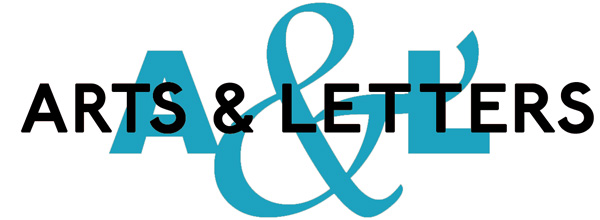Tag Archives: Karyna McGlynn
Ampersand Interview Series: Karyna McGlynn interviewed by Kelsie Doran

Checkout our latest interview in our Ampersand Interview Series with Karyna McGlynn
In the latest Ampersand Interview, Assistant Managing Editor, Kelsie Doran, spoke with Karyna McGlynn about the 1980s, puberty, and her poems which will be published in the forthcoming Arts & Letters Issue.
Kelsie Doran: We have selected three of your poems to publish, “Upon Being Shot by the Shrink Ray”, “I Stand Outside This Woman’s Work”, and “Love Song to a Wicked Stepsister Who Peaked in the 80s.” Were these poems written around the same time during your writing process or were they scattered?
Karyna McGlynn: “I Stand Outside This Woman’s Work” and “Love Song to a Wicked Stepsister Who Peaked in the 80s” were basically written back to back, and relatively recently. I have a whole series of these late 80s poems that originated from a writing exercise I did with fellow Memphis poet Marcus Wicker. “Upon Being Shot by the Shrink Ray” had a more difficult birth. It’s one of the oldest poems in my new manuscript. It’s been through many incarnations over the last seven years. For the longest time it was called “Pursephone” (Get it? Like Persephone, but in a purse!). I thought this
was very clever but everybody in my poetry workshop hated it–half of them thought I meant “purse phone” (Like a phone that’s in a purse? Like I somehow don’t know the term “cellphone”?) and the other half just thought I didn’t know how to spell “Persephone!”
KD: There is a very raw voice throughout your poems, and you deal with the adolescence a lot. Would you consider your youth to be one of the rawest times of your life?
KM: Absolutely. Isn’t youth one of the rawest times of everyone’s life? We’re like soft-shell crabs, scuttling around all awkward and vulnerable, silently thinking “Please don’t eat me!” And it’s even worse when you’re a sensitive or artsy kid. For me, growing up in Texas in the 80s and 90s was profoundly strange. But nobody I knew ever seemed to acknowledge how strange (even
wrong) everything was. It’s like you weren’t supposed to talk about anything interesting, or question how anything was done. I was always getting in trouble after trying (and finally failing) to stay silent. Sense memories from my youth are particularly charged with that accreted silence, and I do try to convey that charge in my syntax and word choice.
KD: The Miracle of Birth is a movie we all dread when we are being told about childbirth in school, what inspired you to make a poem out of this usually avoided subject?
KM: OMG. Yeah, so this actually relates back to your previous question. My poems are often direct confrontations with my fears, and childbirth has always been one of my greatest fears. I was baffled at the way everyone acted like birth was perfectly normal and natural, and obviously part of every woman’s life plan. The Miracle of Birth horrified me–I wasn’t prepared for how raw and alien it all seemed. Isn’t that awful to admit?! It took years for me to deal with this discomfort in a poem so directly.
KD: Where do you write most often? Do you like to have a specific writing space?
KM: I used to write almost exclusively in coffee shops, but now I write at a canary-yellow table on my sun porch. I have a bunch of plants and candles, so it’s really magical. I have a separate work space inside, but it’s now been completely taken over by my collage supplies.
KD: The verbs and adjectives you use are so crisp and bring the reader straight into an image – do these usually come with the first few drafts of writing or do you spend a lot of time finding them?
KM: Thanks! I’m so pleased you think so. I try to emphasize imagery and diction in my work, and I would probably say that sensory/sonic detail is one of my strengths. It’s something I really value in other poets’ work as well. I’ve always been in love with the music & muscularity of language.
And I love projecting weird little movies into the reader’s mind.
KD: What/who inspires you most as a poet?
KM: Kate Bush, visual art, stand-up comedy, Alice Notley, stop-motion animation, TCM, 80s music videos, dance & Diane Seuss.
KD: When did you first consider yourself a poet?
KM: Embarrassingly early. It was the first thing I ever felt good at. I won a prize for a little chapbook I made in fifth grade and I was like, “Oh my god! This is WHO I AM.” I’ve been doing it in one form or another ever since.
KD: What is next for your writing? Is there anything you can share about forthcoming projects or poems?
KM: Yes, the poems you took are from my new manuscript, 50 Things Kate Bush Taught Me About the Multiverse. I’m also co-editing this excellent anthology with Erika Jo Brown: Clever Girl: Witty Poems by Women.
Karyna McGlynn’s is a writer & collagist living in Memphis, TN. She is the author of four books of poetry, including, most recently, Hothouse, which was a New York Times Editor’s Choice. Her work has appeared in The Kenyon Review, Poet Lore, Missouri Review, Ninth Letter, Georgia Review, New England Review, and The Academy of American Poets’ Poem-A-Day. Karyna is an Assistant Professor of Creative Writing & English Literature at Christian Brothers University. She’s currently working on a book about Kate Bush and co-editing the anthology Clever Girl: Witty Poetry by Women.







